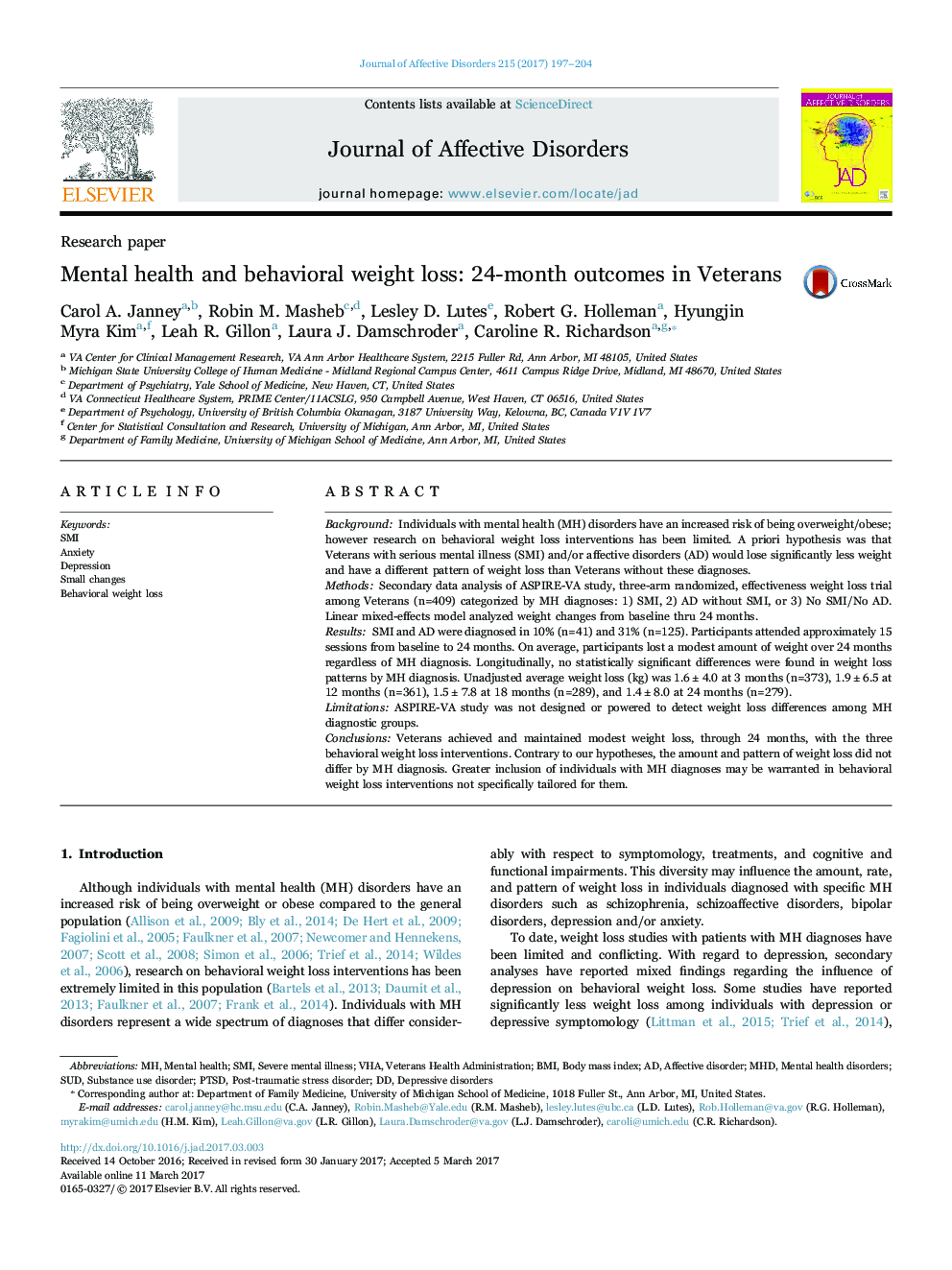| کد مقاله | کد نشریه | سال انتشار | مقاله انگلیسی | نسخه تمام متن |
|---|---|---|---|---|
| 5722345 | 1608110 | 2017 | 8 صفحه PDF | دانلود رایگان |
- Adults with mental health disorders have an increased risk of being obese.
- Small changes were compared to usual care weight loss programs in Veterans.
- Regardless of mental health diagnosis, Veterans achieved modest weight loss.
BackgroundIndividuals with mental health (MH) disorders have an increased risk of being overweight/obese; however research on behavioral weight loss interventions has been limited. A priori hypothesis was that Veterans with serious mental illness (SMI) and/or affective disorders (AD) would lose significantly less weight and have a different pattern of weight loss than Veterans without these diagnoses.MethodsSecondary data analysis of ASPIRE-VA study, three-arm randomized, effectiveness weight loss trial among Veterans (n=409) categorized by MH diagnoses: 1) SMI, 2) AD without SMI, or 3) No SMI/No AD. Linear mixed-effects model analyzed weight changes from baseline thru 24 months.ResultsSMI and AD were diagnosed in 10% (n=41) and 31% (n=125). Participants attended approximately 15 sessions from baseline to 24 months. On average, participants lost a modest amount of weight over 24 months regardless of MH diagnosis. Longitudinally, no statistically significant differences were found in weight loss patterns by MH diagnosis. Unadjusted average weight loss (kg) was 1.6±4.0 at 3 months (n=373), 1.9±6.5 at 12 months (n=361), 1.5±7.8 at 18 months (n=289), and 1.4±8.0 at 24 months (n=279).LimitationsASPIRE-VA study was not designed or powered to detect weight loss differences among MH diagnostic groups.ConclusionsVeterans achieved and maintained modest weight loss, through 24 months, with the three behavioral weight loss interventions. Contrary to our hypotheses, the amount and pattern of weight loss did not differ by MH diagnosis. Greater inclusion of individuals with MH diagnoses may be warranted in behavioral weight loss interventions not specifically tailored for them.
Journal: Journal of Affective Disorders - Volume 215, June 2017, Pages 197-204
